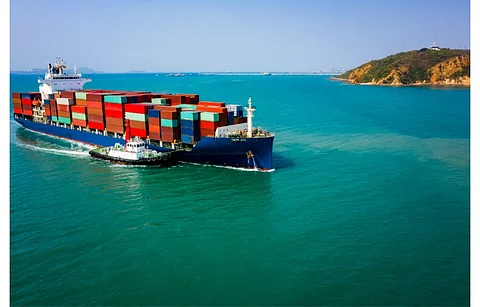

A group of US solar PV manufacturers has filed a set of antidumping and countervailing duty (AD/CVD) petitions with the US government to investigate 'potentially illegal trade practices' by Cambodia, Malaysia, Vietnam, and Thailand. They claim these practices are injuring the US solar industry.
They demand the imposition of these duties against companies importing solar PV cells and modules into the US from these 4 Southeast Asian nations. These companies would primarily be China-headquartered.
The petitioners, namely Convalt Energy, First Solar, Meyer Burger, Mission Solar, Qcells, REC Silicon, and Swift Solar, have come together as the American Alliance for Solar Manufacturing Trade Committee.
They have filed the petitions with the US International Trade Commission (USITC) and the US Department of Commerce through Wiley Rein LP, a law firm.
Their call to impose AD/CVD comes just before the deadline of June 2024 when the US government's 2-year moratorium on imposing these duties on companies evading the tariffs comes to an end. In its final determination, the Commerce Department found BYD Hong Kong, New East Solar, Canadian Solar, Trina Solar and LONGi's Vina Solar in breach of rules (see US Circumvention Investigation Comes To A Close).
According to the petitioners, the moratorium gave enough time to the Chinese solar manufacturers circumventing the tariffs to shift their supply chains. Hence, they will not be expected to pay tariffs when the moratorium ends.
"America's solar manufacturing industry is on the cusp of tremendous growth that will create jobs and change the trajectory of our clean energy transition for decades to come. However, this manufacturing renaissance is being threatened by China's industrial policy, which has led to massive subsidization in China and Southeast Asia. This is resulting in high volumes of dumping on global markets including the U.S., injuring our domestic producers," said Co-Chair of Wiley's International Trade Practice and Lead Counsel to the petitioners, Tim Brightbill.
The Commerce Department now has 20 days to determine whether to initiate the investigations, while the USITC will reach a preliminary determination of material injury or threat of material injury within 45 days. According to the committee, the entire investigation process will take close to 1 year and final determinations of dumping, subsidization and injury are expected in spring 2025.
Once in place, the collection of preliminary countervailing and antidumping duties will begin in approximately 4 months and 6 months, respectively.
Industry associations have set the alarm bells ringing, raising concerns about its impact on the US solar deployment spree.
In a joint statement, the Solar Energy Industries Association (SEIA), American Clean Power Association (ACP), Advanced Energy United (United), and American Council on Renewable Energy (ACORE) said that this petition will create market uncertainty.
"We are deeply concerned the AD/CVD petitions will lead to further market volatility across the U.S. solar and storage industry and create uncertainty at a time when we need effective solutions that support U.S. solar manufacturers," stated the associations.
They instead urge the administration to consider alternative solutions to support the local manufacturers like the Advanced Manufacturing Tax Credit and other policies.
Meanwhile, a Reuters report recently claimed that the US government is considering ending the exemption provided to bifacial solar panels from Section 201 tariffs following a request by a consortium of US manufacturers, led by Hanwha Qcells (see White House May End Exemption For Bifacial Solar Panels).
